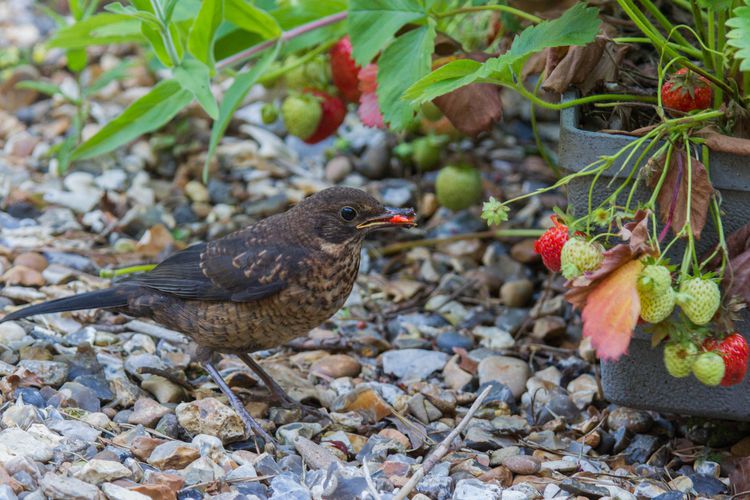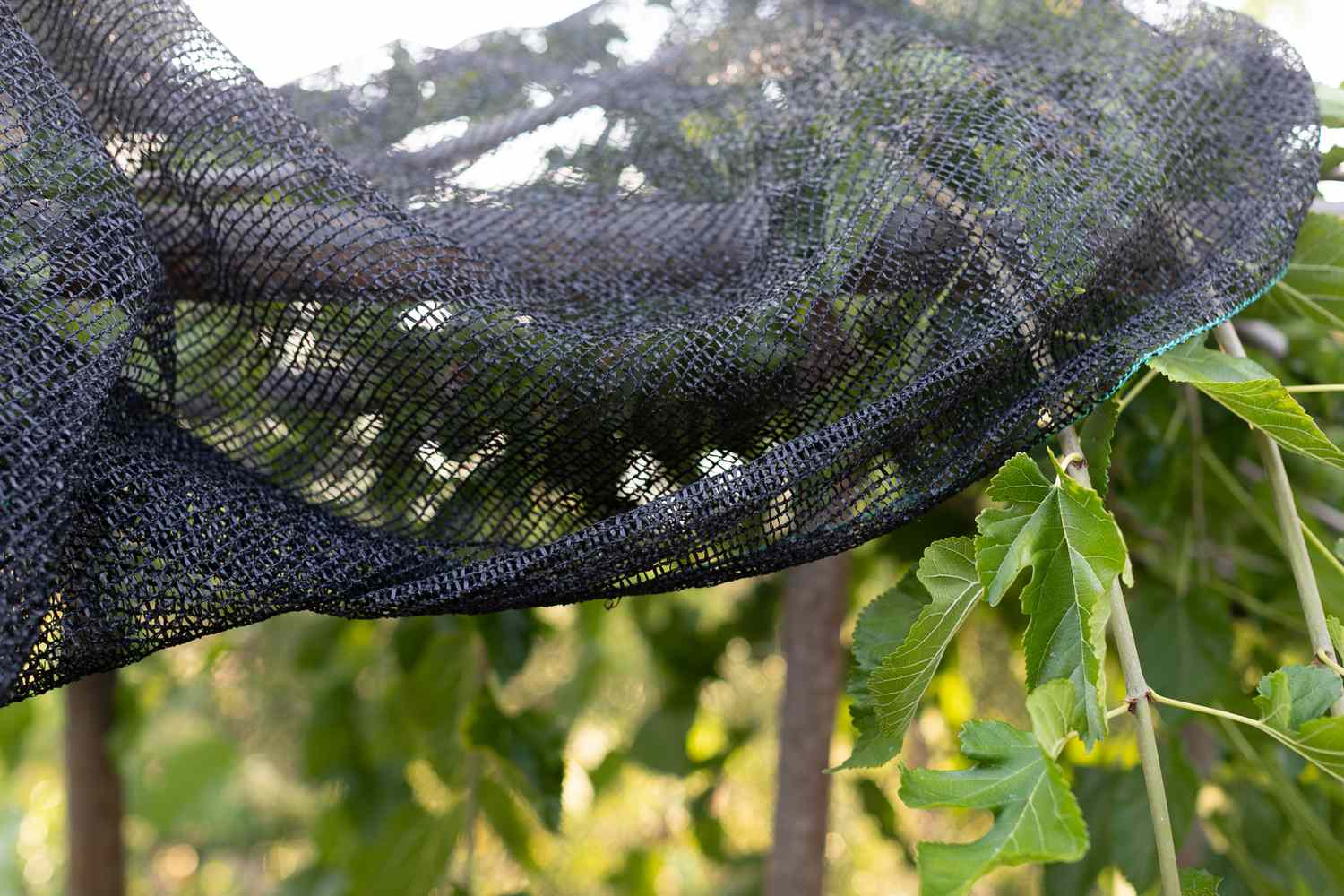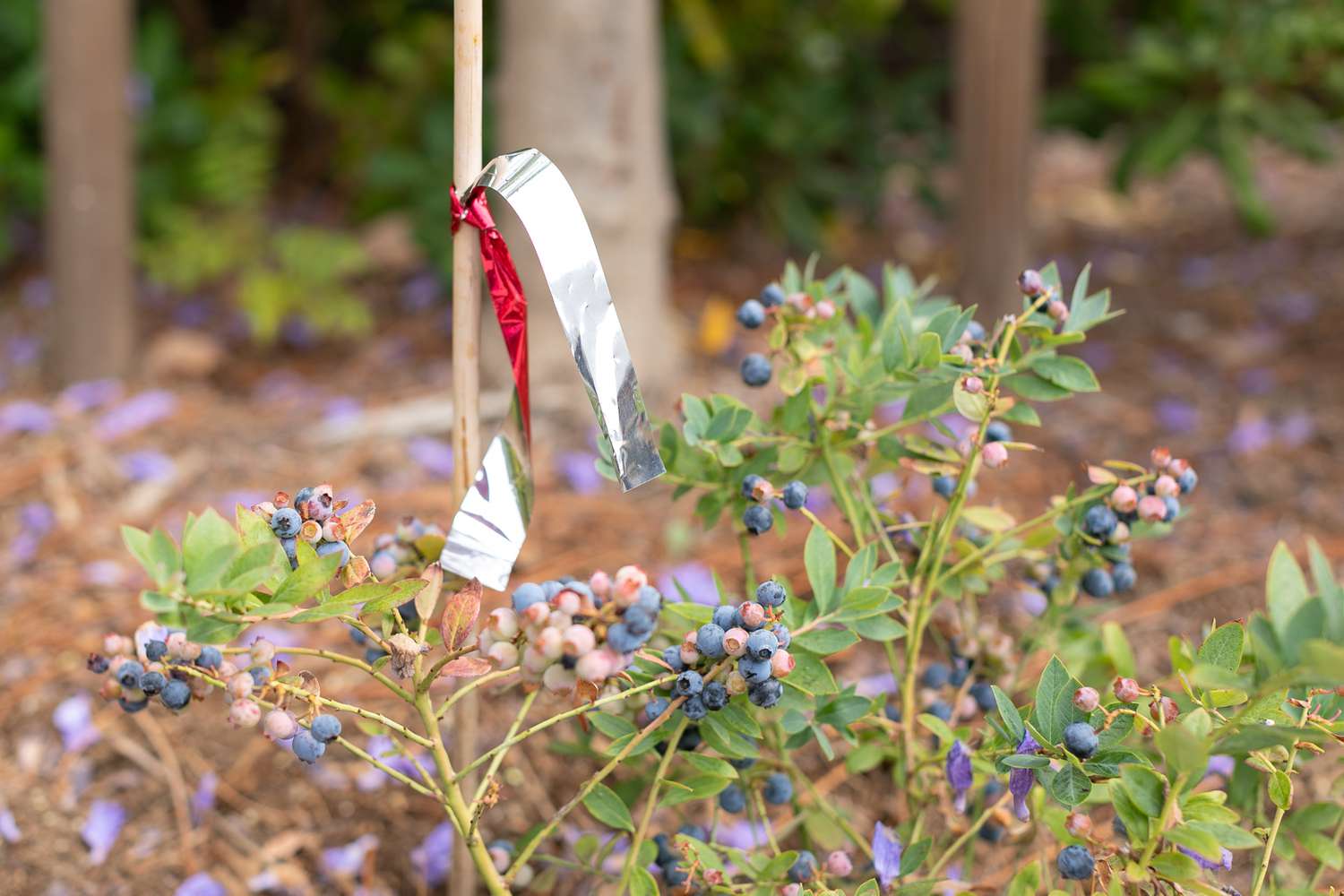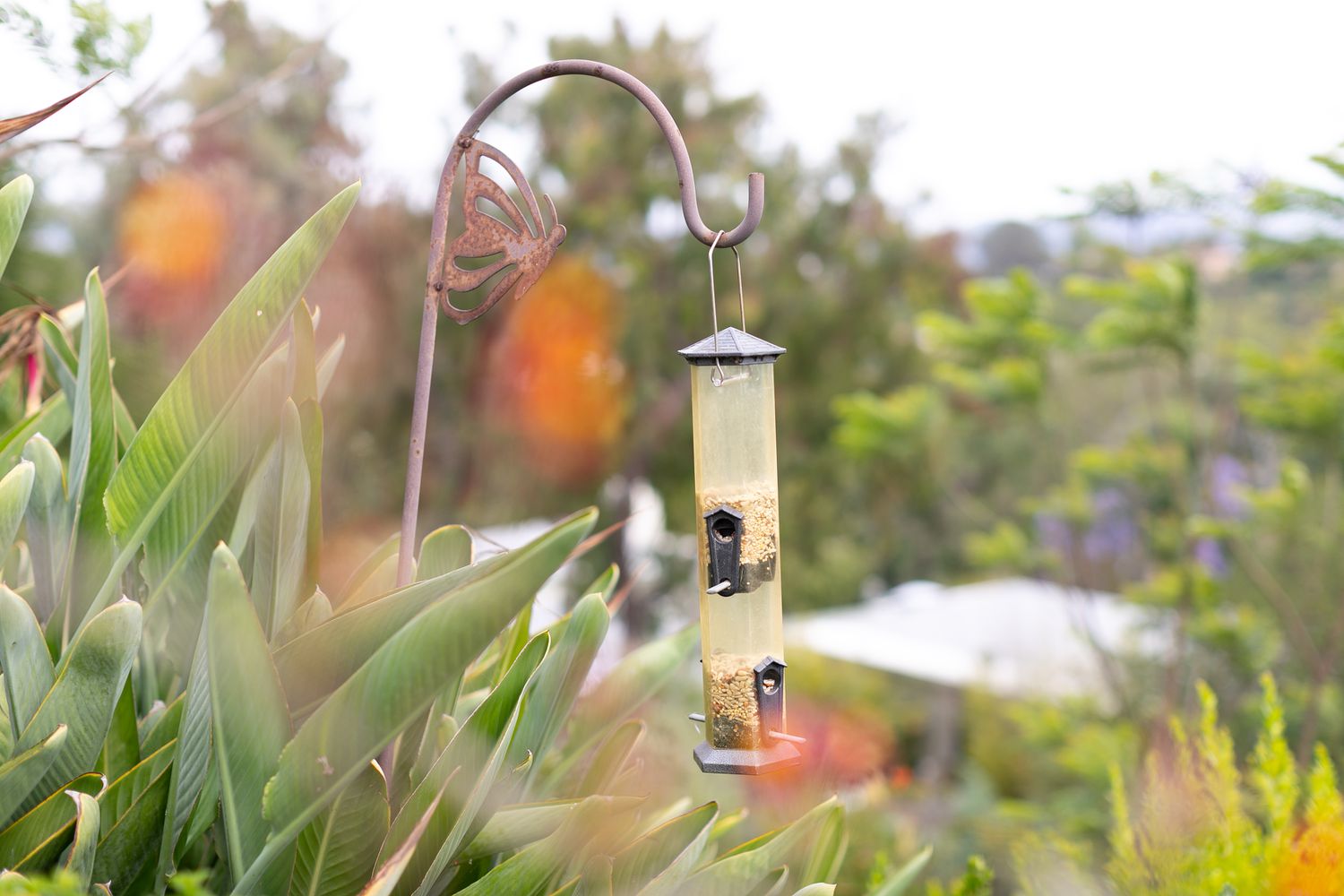Contents
Colleen Vanderlinden is a specialist in organic gardening. She is the author of “Edible Gardening for the Midwest” and “Vegetable Gardening for the Midwest.” Her articles have been featured in publications such as Mother Earth News, Northern Gardener, The Detroit News, and Birds & Blooms.

Birds enjoy snacking on strawberries, raspberries, blueberries, and various other fruits that you may be cultivating. These fruits from gardens and orchards are just as delicious and nutritious for birds, as well as for many other animals, as they are for humans.
Just because birds are spotted in the vicinity doesn’t necessarily indicate that they are feeding on the berries. It’s important to confirm that you are actually observing the birds consuming your fruit before proceeding with any measures.
Ways to Safeguard Berries from Birds
There are various compassionate methods to protect your berry harvest from local birds. Here are some of the most effective options.
Tip
Keep in mind that birds can help control insect populations that harm your berries, so the strategies you implement to deter them might also stop them from eliminating significant pests.
Netting
Covering your berry bushes and small fruit trees with affordable netting helps keep birds away from most of the fruit. For shorter plants like strawberries, you can use floating row cover frames to hold the netting in place and protect the berries. For taller berry bushes, consider using pop-up screens available at gardening supply stores.

Harvest Berries Promptly
Harvest berries before the birds have a chance to eat them. For instance, gather blueberries just before they reach full ripeness, as they will ripen further when kept at room temperature. There’s no need to wait for them to achieve the ideal color on the bush, as this will only draw the attention of birds. Keep in mind that not all berries, such as strawberries, will ripen further once they have been harvested.
Flash Adhesive Tape
Utilize reflective tape as an affordable alternative. Strips made of Mylar or foil that flutter in the wind can effectively deter birds. The shiny surface of the tape is unappealing to birds, and the movement it creates is an effective method to keep them away from the vicinity.

Compact Discs or Aluminum Foil Pans Suspended on a Cord
Scare away birds from your garden by utilizing reflective, moving items. For instance, thread some string through the center of a CD and suspend it from a fence or post close to your berry plants. This approach not only helps protect your crops but also allows you to recycle by repurposing old CDs and aluminum pie plates.
Decoys (Imitation Predators)
When birds spot a potential threat, such as a raptor, a snake, or a human-like scarecrow, they tend to avoid the berries nearby. Various garden supply retailers offer a range of inflatable or cardboard scarecrows designed to resemble owls, hawks, or snakes for garden use. To maintain their effectiveness, it’s important to reposition the scarecrow every few days. Additionally, scarecrows can bring a playful charm to the garden.
Birdbath
Place a birdbath in proximity to your garden. It’s widely believed that when birds invade your berry plants, their primary motivation is thirst rather than hunger. The moisture in berries attracts birds seeking hydration. By providing a birdbath nearby, you can satisfy their thirst, encouraging them to bypass your berries. This effect can be enhanced by incorporating the soothing sound of running water, such as a dripper or fountain.
Bird Feeders
Set up one or two feeders near your berry garden to attract birds to those instead of your harvest. The goal is to provide birds with their own food source to keep them from disturbing your crops. Ensure that the feeders are designed to keep squirrels away. Similar to the concept of a bird bath, bringing birds into your garden can assist in managing insect pests.

Radio
Place a radio in your berry garden or close to your grapevines to generate sufficient sound to deter hungry birds. Keep in mind that playing a radio continuously can become bothersome for both you and your neighbors. Additionally, once the birds become accustomed to the noise, they may become bold and start exploring your garden.
Cultivate Sufficient Resources for All
Consider planting a larger number of berry bushes or grapevines than necessary to minimize the impact of any losses. By planting more than you require, you can ensure a harvest of berries for yourself, while also allowing the birds to enjoy their portion.
What Types of Birds Consume Berries?
Certain bird species mainly consume insects and show little interest in berries. Conversely, there are other species that thrive on berries. Among the numerous bird species, around two dozen are the most inclined to enjoy your berries, such as:
- The American robin
- Baltimore oriole
- Black-capped chickadee is a small bird known for its distinctive black cap and cheerful call.
- Cyanocitta cristata
- Black-headed grosbeak is a striking bird known for its distinctive coloration and melodic song.
- Bohemian waxwing is a bird known for its striking appearance and social behavior.
- Brown thrasher
- Bullock’s oriole is a vibrant bird known for its striking plumage.
- Cedar waxwing
- Crested barbet is a colorful bird known for its distinctive crest and vibrant plumage.
- Eastern bluebird is a vibrant songbird known for its striking blue plumage and cheerful melodies.
- Common starling
- Gray catbird
- House finch
- House wren
- Northern cardinal is a striking bird known for its vibrant red plumage and distinctive crest.
- The northern flicker is a type of woodpecker known for its distinctive markings and behavior.
- Northern mockingbird
- Lavender-colored finch
- Rose-breasted grosbeak is a striking bird known for its distinctive pink and black plumage.
- Ruby-crowned kinglet
- Crimson tanager
- Scarlet tanager
- Tufted titmouse is a small songbird known for its distinctive tufted crest and lively behavior.
- Western tanager
Is it safe to offer strawberries to wild birds?
Indeed, offering strawberries to wild birds is safe. However, be aware that they might return for additional treats.
Are strawberries part of a squirrel’s diet?Indeed, squirrels enjoy consuming strawberries, which are frequently among their preferred fruits.Which animals consume strawberries during the night?
A range of animals might be feasting on strawberries during the nighttime, such as raccoons, groundhogs, squirrels, chipmunks, and mice.


 Understanding the Distinction Between Porch and Patio – How They Differ and Which is Right for You
Understanding the Distinction Between Porch and Patio – How They Differ and Which is Right for You Step-by-Step Guide – Building a Small Lawn on Your Balcony
Step-by-Step Guide – Building a Small Lawn on Your Balcony Ways to Eliminate Permanent Marker Stains from Various Surfaces
Ways to Eliminate Permanent Marker Stains from Various Surfaces